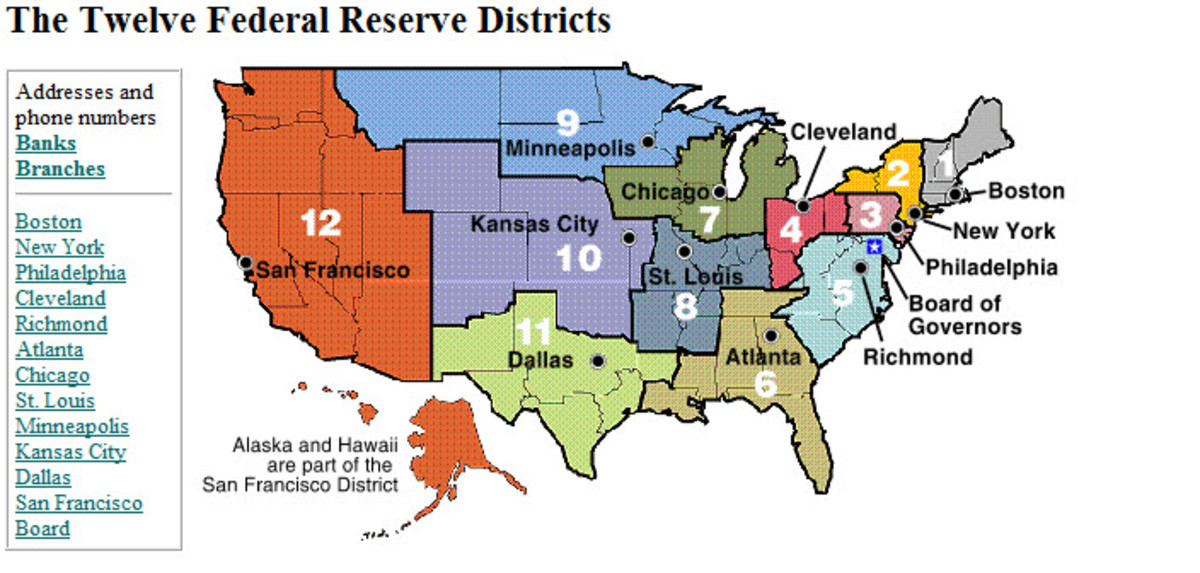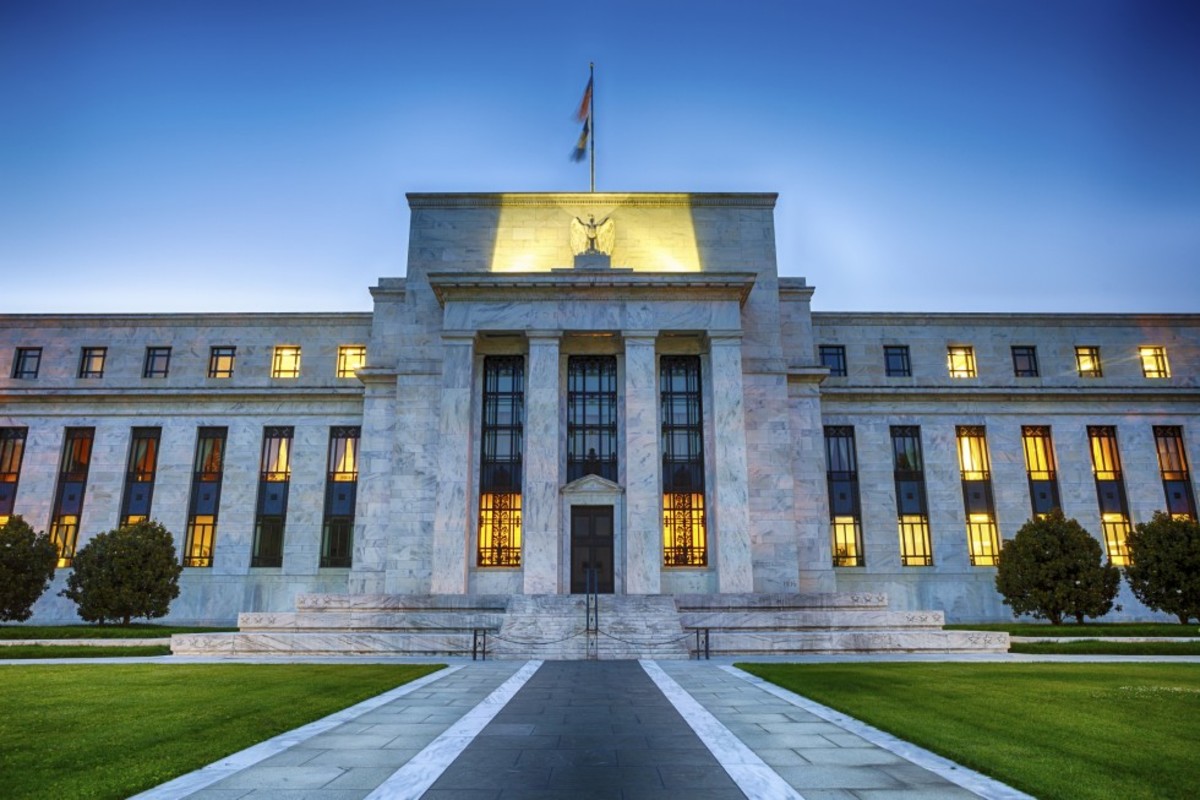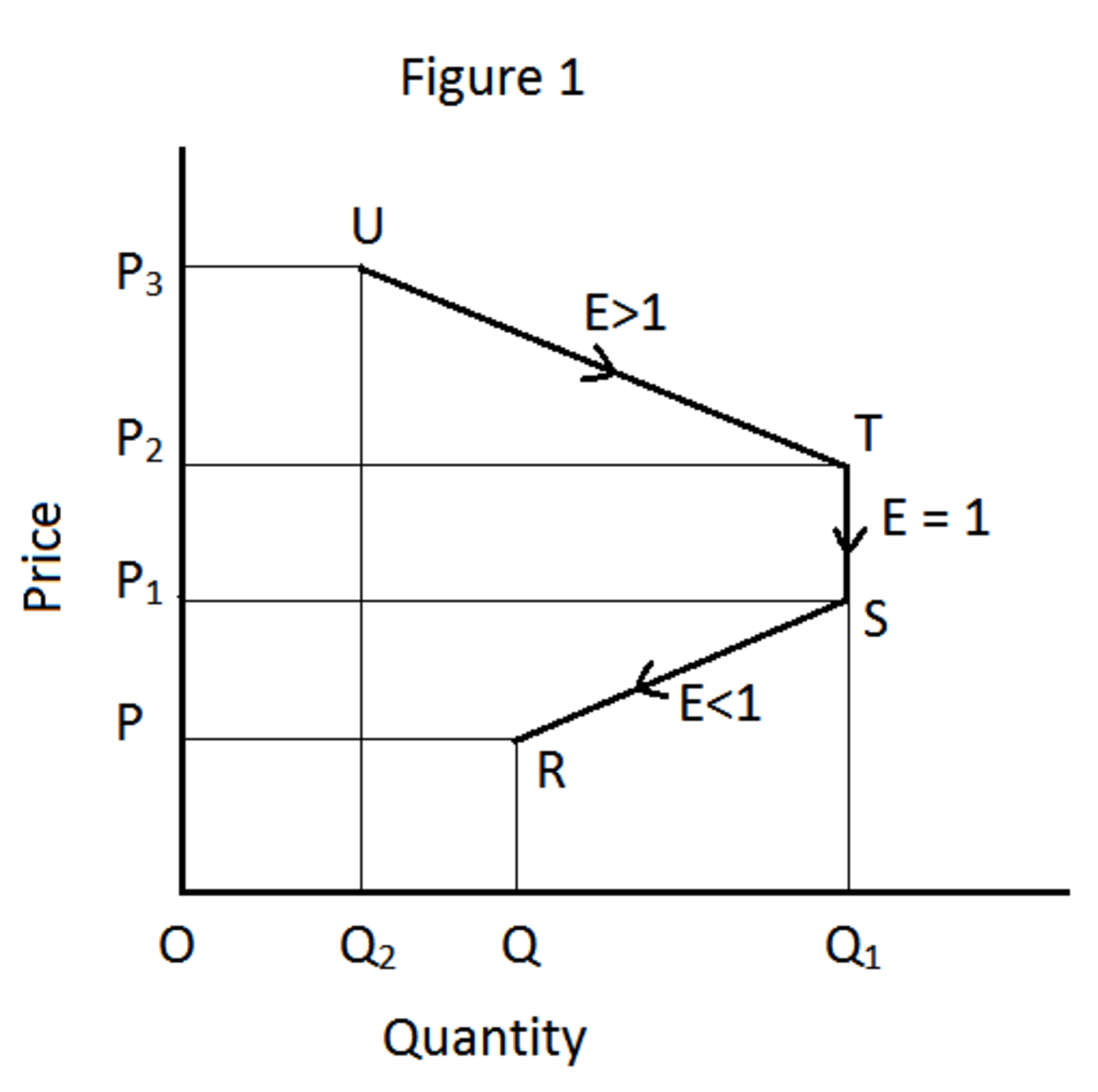Should Interest be Abolished?

The Discussion
Two years ago, I was invited to a round table discussion on the topic of money: what it is...what it represents, and what really should be done about it. Ten people attended, of which 7 of them had read the book Web of Debt, written by Ellen Brown. I attended with my wife and a friend of mine, both of whom were familiar with my opposing point of view.
The basic premise of Web of Debt is that The Federal Reserve is printing money and lending it to the United States at interest, thus creating the ever growing cycle of debt that we are experiencing...and that we are forever beholden to the bankers.
Her solution, in a nutshell, is that the U.S Treasury should be printing the money without the use of the Federal Reserve and that interest should not be charged. Moreover, interest should be abolished, for it is interest that enslaves people. This is not a new way of thinking about money. The idea originated with what is known as the greenbackers, a political party that was very active between the years of 1874 to 1889. They were against a commodity backed currency and favored the government having the ability to print as much money as needed, making it easier for small businesses and farmers to raise prices and making it easier to pay back debt.
Interestingly, the main speaker of the day tied this philosophy with Marxism and the belief that capitalism is the bane of existence that the common man experiences today (I expected to find this correlation it in my admittedly light research on Marxism, but I cannot).
For those of you who may be interested where I stood on the topic: Yes, I agree that the Federal Reserve is creating money out of thin air and charging interest to the U.S. Yes, I think it should be abolished, but no, I do not think that the U.S. Treasury should print money as it sees fit, for the U.S Treasury can then create as much "money" as it wants with no counterbalance to keep it in check. This leads to inflation, or more specifically, a devaluation of the dollar. It would simply be worth less compared to the goods consumers want as more dollars are printed.
On a practical level, it means that for all of us who work to earn our dollars, and try to save those dollars for future purchases, will lose because future prices will outpace what we save. Moreover, it creates more of a wealth imbalance between those who own assets such as large cash flowing business and real estate and those that do not.
I do favor a commodity money such as that backed by precious metals or other tangible assets that have relative scarcity so that the value of our money is just as strong in the future as the day we earn it. For clarity, I am talking about money that can be redeemed at any time for the specified amount of whatever is backing it without any kind of restrictions. This is sound money. It is a big point of contrast that I have with green-backers.
We had lengthy back and forth discussions on this topic, but their view on interest was also dominating the conversation as well. That is what I want to expand on in this article.
What is Interest?
At the most basic level, interest represents the time value of money. Quite simply it means that a dollar now is worth more than in the future. Let us use an example. You work hard and sacrifice spending a portion of your income every month for several years, and you are rewarded with a savings of $10,000. Doing so benefited you through having more resources at your disposal in the present time. You can use it to buy something you always wanted, or you can continue to save it for a rainy day giving you a sense of security, and so on. Now, what if someone asks you if he can borrow it for his own use? Would you lend it to him? Unless you are altruistic and want no compensation for the loss of your money, you would want something of value in return. Interest represents that. You lend him money now for more money in the future. A large aspect of determining how much you would want to charge interest is how important your money is to you now.
Another aspect that determines the amount of interest is the borrowers ability to repay the loan. If he, for example, shows a history of late payments, or maybe outright debt default on occasion, he would be a higher credit risk. If so, the lender will want to charge a higher interest to the borrower to take on the extra risk of losing his money. Yet another factor that a lender might consider is how much inflation will impact his future money. These two points, among others, are considered when a lender loans out his money, but the main consideration is the time value of money.
Not only is interest used to represent the time value of money, it is also an important component used for economic calculation. I will come back to this point in a moment, but I would first like to define more clearly what usury is.
Usury
Wikipedia defines usury as "the practice of making unethical or immoral monetary loans intended to unfairly enrich the lender". Wikipedia further explains that many sources go so far as to say that any kind of loan that charges interest is considered usury. Many religions, namely Christianity, Buddhism, Judaism and Islam all at some point or another, along with many nations such as Ancient Greece, Rome, and China tried to outlaw people from making loans and charging interest.
The true definition, then of usury is a blurry and unfixed one. It can range from simply loaning money and charging interest to the view that a loan is charging an exorbitant amount of interest by whatever definition is of the day.
In my opinion, as long as both parties enter into the contract voluntarily, fully understanding both the benefits and risks of the contract and the lender does not use intimidation or force in the face of potential default by the borrower, it cannot be defined as usury, no matter how much interest is charged.
Interest Rates and Economic Calculation
Stepping back and taking a look at the broader picture, the general rate of interest being charged is a signal to entrepreneurs whether it is time or not to start new ventures. Let's take the Federal Reserve and it's ability to manipulate interest rates as it pleases out of the picture for a moment. If there is collectively a large pool of savings, it means that people for the most part are postponing immediate consumption for future consumption. Moreover, since there is a bigger pool of savings, interest rates will be lower for borrows. The lower interest rates will be a greater incentive for entrepreneurs to start new businesses, since the carrying cost of money is more manageable. Along those lines, starting a new venture takes time to come to fruition. It takes labor, resources, and time to launch a new business. This also coincides with less spending by savors in the present.
As the new businesses come online and offer new products and services that the public finds desirable, they will then tend to spend more of their savings and enjoy a better quality of life. Furthermore, there will most likely be overall less savings because of the greater consumption, making the pool of savings smaller. This will then increase interest rates.
As interest rates rise, it send signals to new entrepreneurs that either he had better have a killer product, or that maybe now is not the time to start his new venture. This is not necessarily a bad thing. It just represents where resources are better served for all.
The main point is this: there is a limited amount of true wealth at any given moment, true wealth defined by savings and capital created through hard work and thrift. The interest rate charged based on the cumulative decisions of spending and saving in the aggregate is an important piece of keeping savings, investments, labor, and spending working in symbiosis. This is as close as one can get to what Murray Rothbard called the "evenly rotating economy".
Why Are Interest Rates So Low?
The general trend of savings in America has been downward for some time. Since the 1950s, when the savings rate was as high as 10 percent or more, it has gone down over time to where the average savings are now around 2 to 3%. The interest that you can get on long term T-bills is around 2.9 to 3%, and you would be lucky if you can get more than 1% interest on your bank CD's. If there are little to no savings, how can there be such low interest? The Federal Reserve. It has the ability to set interest rates independently of market phenoma. The ways in which the Federal Reserve can do this is by either printing more money or credit into the money system. Thus, interest rates are set more by policy than actual market forces.
What this implies is that we are having a co-mingling of savings and thrift...true wealth, with that of nothing of value...printed money. Moreover, it will distort market signals leading to a boom and bust cycle. Ron Paul describes it this way:
In order to lower the interest rate, more loanable funds must be available. But if individual saving habits remain unchanged, the only way to lower interest rates is to inject additional money or credit into the financial system. This new injection of credit, which has its origins not in savings but merely through a new bank balance sheet entry, results in a lowering of the rate of interest. The lower rate of interest signals the availability of additional loanable funds, which spurs additional borrowing. These borrowed funds are then put to use to fund capital projects. Additionally, as the interest rate lowers some savers may judge that their funds are now better off being used to fund present consumption, rather than continuing to be saved for future consumption.
What happens is that since interest rates are low with a lack of real savings backing it up, entrepreneurs will borrow more to build new projects. Savors will spend more in the present (since they are not getting much return for savings), which creates a boom in the economy.
These boom times cannot last, because the extra money and credit in the system creates distortions that, at some point, have to be corrected and back in balance with true wealth. That is why there are always busts after every boom. It is simply unsustainable.
The boom times are wonderful. I remember very well the mid-90's when I started my personal training business. I opened my shop in 1998 and was already profitable after three months of opening my doors. For the next three years, I was cash flowing quite well. Then the recession hit. I was heavily leveraged (I bought my ex-wife out of the business and took out a loan to do it), and I eventually could not support the debt service. I know my business wasn't the only one by any measure. My bankruptcy lawyer was very busy at the time. The busiest he has been in a long time.
Conclusion
The round-table discussion I had that night was certainly interesting...and entertaining, but the belief among most of the people at the discussion that interest is usury and therefore should be abolished is a non starter. As long as people save money, there will always be those who want to and need to borrow, and there has to be an incentive for savors to part with their money. Interest is one tool to do that. Moreover, the interest rate set in the aggregate due to the amount of funds available for lending plays a big role in creating a harmonious economy.
Further Reading
For a better understanding of the boom/bust cycle, or as it is better known among Austrian economists, the business cycle, I recommend these books:
- Rothbard, Murray. America's Great Depression. http://mises.org/document/694/Americas-Great-Depression
- Jesus Huerta de Soto. Money, Bank Credit and Economic Cycles. http://mises.org/document/2745/Money-Bank-Credit-and-Economic-Cycles
- Herbner, Jeffrey.The Pure Time-Preference Theory of Interest. http://mises.org/document/6784/The-Pure-TimePreference-Theory-of-Interest
- Von Mises, Ludwig. Human Action. http://mises.org/document/3250
The book from Ludwig Von Mises is very comprehensive. He talks about every aspect of economics and how humans act in the market. It is a very good read. I highly recommend it.








